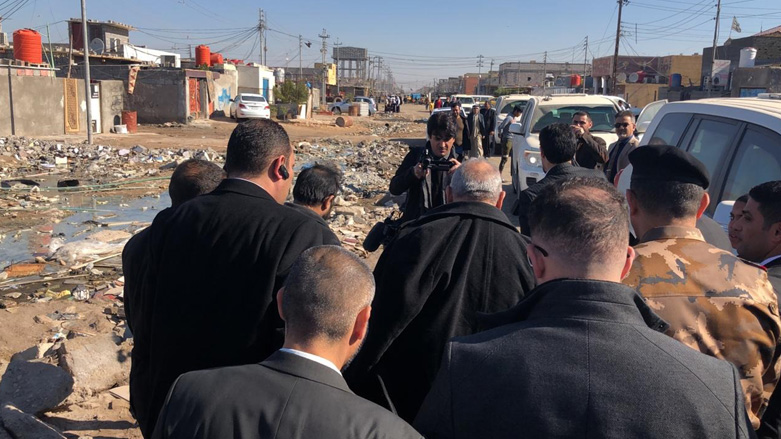Iraqi PM arrives in oil-rich Basra as protests against lack of basic services resume

ERBIL (Kurdistan 24) – Iraqi Prime Minister Adil Abdul-Mahdi on Sunday arrived in the province of Basra to revived protests in the area against the government over the lack of basic services.
It was Abdul-Mahdi’s first visit to Basra since taking office on Oct. 25, 2018.
The prime minister met with local officials in the province where a dilapidated infrastructure has yet to be upgraded 16 years after the fall of Saddam’s authoritarian regime in 2003.
Abdul-Mahdi reviewed the progress of some ongoing projects in the province and briefed local residents on the government’s efforts in resolving service issues, according to Prime Minister’s press office.

Mass protests began in July in Basra and spread across several southern and central provinces, including the capital of Baghdad. Participants burned down multiple governmental and party offices over the next few months, notable among them Basra’s governorate building and Iranian Consulate.
In addition to demands for better employment and services mentioned above, other central issues of the movement have been chronically poor infrastructure and government corruption. Organizers decry the low standard of living in the oil-rich province, the petroleum exports from which account for over 90 percent of the nation’s total revenue.
Though protests slowed in late 2018, they began again in December when crowds began to reiterate their frustrations, continuing to claim that officials were still failing to deliver on promises made during the runup to the last national election in May.
The recent protest appears to be a continued escalation in the methods of the demonstrators and likely points to a growing outrage among the public, viewing the local and central governments as irresponsive to their demands.
Iraq is the second-largest oil producer in OPEC following Saudi Arabia. The export of Basra’s oil alone makes over 90 percent of Iraq’s total revenue.
The visit comes as the national parliament continues a months-long deadlock over the selection of the three remaining ministries in Abdul-Mahdi's government cabinet.
The country continues to rank high on Transparency International’s list for corruption, fraud, and mismanagement of state institutions, some of the most significant challenges facing the country since the fall of the former regime.
According to the organization’s 2017 Corruption Index, Iraq ranks 169th, the eleventh most corrupt country out of a total 180.
Editing by Nadia Riva
